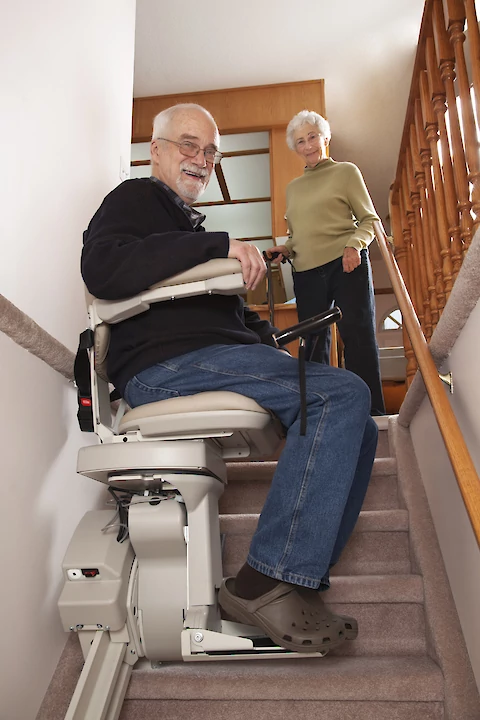
As the senior population continues to grow, so does the need for innovative solutions that help promote independence, safety, and quality of life. This is where assistive technology comes in! From mobility aids to communication devices, these technologies can positively impact seniors' lives and make caregiving a little bit easier.
Types of Assistive Technology for Seniors
A wide range of assistive technology options is designed to cater to the specific needs of seniors. Some common categories include:
- Mobility aids: Walkers, wheelchairs, and scooters are just a few examples of devices that can help seniors maintain their mobility and independence as they age.
- Communication devices: Smartphones, tablets, and captioned telephones allow seniors to stay connected with friends, family, and caregivers, ensuring they don't miss out on important conversations.
- Home modifications: Stairlifts, grab bars, and ramps can make living spaces more accessible and safe for seniors, adapting their environment to suit their needs.
- Personal emergency response systems: Medical alert devices and fall detection systems allow seniors to call for help in emergencies, offering peace of mind for both seniors and their caregivers.
- Medication management tools: Pill dispensers and medication reminder apps help seniors manage their medications effectively, reducing the risk of missed doses or accidental overdosing.
- Cognitive aids: Memory aids and brain training apps can support seniors in maintaining their cognitive functions, helping them stay sharp and engaged.
Benefits of Assistive Technology for Seniors
Integrating assistive technology into the lives of seniors can offer numerous benefits, such as:
- Increased independence and autonomy: By supporting seniors in performing everyday tasks, assistive technology helps them maintain a greater sense of control over their lives.
- Improved safety and security: Devices like personal emergency response systems and home modifications enhance seniors' safety in their living environment, reducing the risk of falls and other accidents.
- Enhanced social connections and communication: Communication devices ensure seniors can stay connected with their loved ones and community, combating isolation and loneliness.
- Better management of health conditions and medications: Assistive technology aids seniors in managing their medications and identifying health concerns on time, improving overall health outcomes.
- Greater overall quality of life: By addressing physical, cognitive, and social challenges, assistive technology contributes to an enhanced quality of life for seniors.
Benefits of Assistive Technology for Caregivers
Assistive technology doesn't just benefit seniors—it's also a game changer for caregivers. Some advantages include:
- Reduced caregiver burden and stress: Assistive devices enable seniors to perform tasks independently, allowing caregivers to focus on other aspects of care or take a much-needed break.
- Improved communication and coordination: Technology can facilitate better communication between seniors, caregivers, and other care team members, streamlining the caregiving process.
- Enhanced ability to monitor seniors' health and safety remotely: Devices like medical alert systems and medication reminders allow caregivers to monitor their seniors' well-being, even from a distance.
- Increased confidence in providing adequate care: With the right technology in place, caregivers can feel more secure in their ability to provide the best possible care for their seniors.
Integrating Assistive Technology Into Daily Routines
To make the most of assistive technology, consider the following steps:
- Assess individual needs and preferences: Identify the specific challenges senior faces and the types of technology that might best address them.
- Research and select appropriate devices and tools: Look for user-friendly options that are compatible with a senior's needs and abilities.
- Provide training and support: Ensure seniors and caregivers understand how to use the technology effectively.
- Regularly evaluate and adjust the use of technology as needed: Continually assess whether the technology is meeting its intended goals and make adjustments as necessary.
Challenges and Tips for Using Assistive Technology
While assistive technology has many benefits, it's essential to address some common challenges:
- Financial costs and affordability: Explore insurance coverage and financial assistance options, and prioritize essential devices to help manage costs.
- Technology literacy and accessibility: Choose user-friendly devices and provide ongoing education and support for seniors and caregivers to build confidence in using the technology.
- Privacy and security concerns: Ensure secure storage and transmission of personal information, and educate seniors and caregivers about potential risks and precautions.
Senior Helpers Columbus North, OH Understands the Importance of Assistive Technology for Seniors
Embracing assistive technology can significantly improve the quality of life for seniors and caregivers alike. By exploring the many available options and addressing potential challenges, seniors and caregivers can make the most of these innovative tools. If you live in Columbus, Delaware, Dublin, Hilliard, Westerville, Franklin County, or Powell, contact Senior Helpers Columbus North, OH for assistance with finding and implementing the perfect assistive technology solutions for your senior loved one.